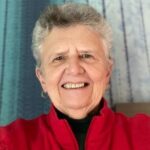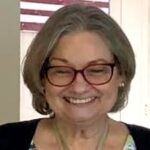By Stell Simonton
Braver Angels Georgia
LILBURN, Ga. | Surprise! Conservatives and liberals can agree on something. They agree on how to hold a trustworthy election. If this seems counter-intuitive, read on.
In 26 workshops held across the nation over three years, liberals and conservatives were asked to come up with the ingredients that would make U.S. elections fair and trustworthy. Each workshop consisted of four to eight people — an equal number of liberals and conservatives — and one was held in Georgia in 2023.
Here are a few of the policies agreed on in the workshops:
- Make Election Day a national holiday.
- Require voters to show identification. States could provide free voter ID to every eligible voter.
- Have states join a shared database such as ERIC (the Electronic Registration Information Center), to improve the accuracy of voter rolls.
![]() Participants also agreed that all states should offer no-excuse-needed absentee ballots. And they agreed that no state legislature or nonjudicial official should be allowed to overturn election results.
Participants also agreed that all states should offer no-excuse-needed absentee ballots. And they agreed that no state legislature or nonjudicial official should be allowed to overturn election results.
The workshops were led by Braver Angels , a national nonprofit begun in 2016 with the goal of reducing political polarization. The workshops, which drew people from 27 states, followed a structure that was partly the brainchild of Minnesota family therapist Bill Doherty, based on his work with divorcing couples. The process allowed people from different political parties to find and focus on shared ideas rather than areas of disagreement.
The Georgia workshop was moderated by Barbara Brown, a special ed teacher at Berkmar Middle School in Lilburn, who leans red, and John Schwenkler of Decatur, who leans blue. Brown is co-coordinator of Braver Angels Georgia along with retired Baptist minister Sharyn Dowd.
Braver Angels Georgia will present the results of the workshops — the Trustworthy Elections Report — to the Georgia State Elections Board on July 9.
The workshop structure is what enables people to find common ground. First, the participants divided along party lines and came up with a list of values. Then they traded their lists and each group scrutinized the other’s. They kept any value statements they agreed with. Then the whole group examined the common values they held and struck off any that seemed problematic.
For example, one agreed-upon value was: Every citizen should be assured the opportunity to cast a legal vote with “relative ease.” Another was: Democracy only works if all parties to an election abide by the rules and accept the final results.
Then the participants divided along party lines again and listed their concerns about problems implementing the value statements. Conservatives tended to be concerned about election fraud, while liberals tended to be concerned about access to voting, Dowd says.
Finally they drafted policies that addressed each concern. Reds and blues traded their lists and then together examined solutions that the whole group could get behind.
In the current political climate, there are not enough venues for finding agreement with our political opponents, Dowd says. “I think the biggest problem is that we have become so siloed and are in our own echo chambers that we see people who vote differently from us in stereotypical ways,” Dowd adds. “Instead of seeing people who vote differently as mistaken, we see them as evil.”
Braver Angels, on the other hand, has developed a way to bring to light the common values people have and the solutions they might jointly find.
- Have a comment? Click here to send an email.












Follow Us